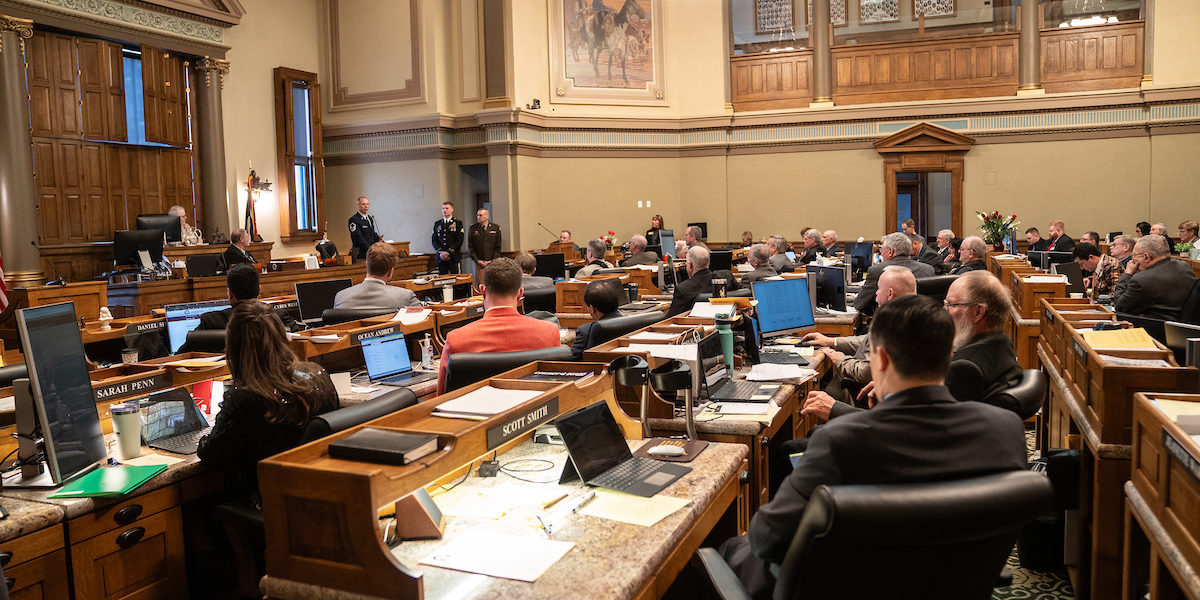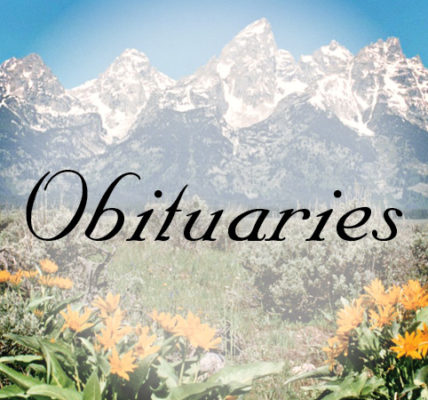By Carrie Haderlie
Wyoming Tribune Eagle
Via- Wyoming News Exchange
CHEYENNE — A bill to terminate and defund diversity, equity and inclusion programming at the University of Wyoming and community colleges is headed for Gov. Mark Gordon’s desk.
Sen. Cheri Steinmetz, R-Torrington, has tried to bring sweeping changes like those proposed in Senate File 103, “Terminating and defunding diversity, equity and inclusion,” in budget amendments during past sessions, but this year, Steinmetz said she felt it was time for the bill to stand alone.
This session, Steinmetz has said that rather than DEI programming, she prefers “racially neutral, or color blind laws.”
In the House, Rep. Jeremy Haroldson, R-Wheatland, explained that the bill will create two new sections of statute regarding how funds can be used by state entities, be they “bequested, charged, deposited, donated, endowed, fees, grants, gifts and tuition.”
None could be used to “establish or maintain DEI programs,” Haroldson said.
There are carveouts in the bill for academic course instruction; dissemination of scholarly work by students, faculty or other research personnel of UW or community colleges; and for “federally recognized tribes,” according to Haroldson.
Rep. Ken Chestek, D-Laramie, said he believes measures like SF 103 will drive young people from the state.
“We’ve heard a lot of talk — and we all know this is true — about the brain drain. Our young people leaving the state, not wanting to come back,” Chestek said. “It’s stuff like this that makes that happen.
“Our young people are not as concerned about diversity, equity and inclusion as some of us seem to be in this body, and passing laws like this simply make Wyoming an unwelcome place for the younger generation,” Chestek said.
Haroldson pushed back, saying that people in his community are “no longer sending their kids to our college because of this.”
Haroldson said it is within lawmakers’ purview to say “we don’t want these things taught to our students,” because higher education is funded by the Legislature. SF 103, he said, sets a policy clearly stating what lawmakers want taught in state-funded institutions.
The House Speaker Pro Tempore likened it to his role leading Impact Ministries in Wheatland.
“I have an opportunity to stand as a pastor in a church. It’d be like someone coming in and saying, ‘Hey, we want to give this donation to your ministry, but we’re going to earmark it to something that morally you disagree with’,” Haroldson said. “Well, that’s not going to work.”
Rep. Mike Yin, D-Jackson, pointed out that SF 103 will also restrict how private donations are used within Wyoming’s public institutions, which may lead to educational institutions being forced to reject entire donations, even if a small part would be used for programming prohibited under the bill.
“I think that’s a real problem,” Yin said. Rep. Trey Sherwood, D-Laramie, brought a third-reading amendment to clarify that the restrictions would apply to governmental funds, but would “ensure that donor funds were spent according to donor intent.”
“Keep in mind that a governmental entity can refuse a donation from a donor, so if that gift comes with DEI considerations, that governmental entity can say ‘no thanks’,” Sherwood said.
“This does not prohibit someone from saying, ‘I don’t want to take that gift.’”
Rep. Ken Clouston, R-Gillette, said he would support Sherwood’s amendment based on his own experience serving on a cancer care board in his hometown.
“We would get lots of donations set for different things,” he said. “The button to call for health help, or when we set up a CT scanner. A lot of the donations were specific for a certain project, so I appreciate the bringer of this amendment, and how it would help in those situations.”
Rep. John Bear, R-Gillette, said Sherwood’s amendment would go against the intention of the bill.
“Here we are trying to decide if we are going to allow private funding to go against the policy that this bill is trying to purport,” Bear said.
“Now, does that mean that some grant monies will be at risk? Yes, it does. But should we be seeking grant money that goes in opposition to this bill?”
Haroldson said he was also concerned Sherwood’s amendment would prohibit DEI programming “except for when it is (paid for with) private funds.”
“I stand 100% behind the idea that we want to eliminate the conversation of diversity, equity and inclusion, and what that has turned into in this day and age,” Haroldson said.
Sherwood, however, argued that it is easy for lawmakers as collective appropriators to put restrictions on state and federal funds. But the conversation is different when it comes to private dollars, she said.
“Consider that maybe there is a donor who wants to provide funding for a Black History Month program,” Sherwood said. “I don’t know that it is clear in existing language that that would be allowed.”
Sherwood’s amendment failed, and SF 103 passed the House in a 52-7 vote.





